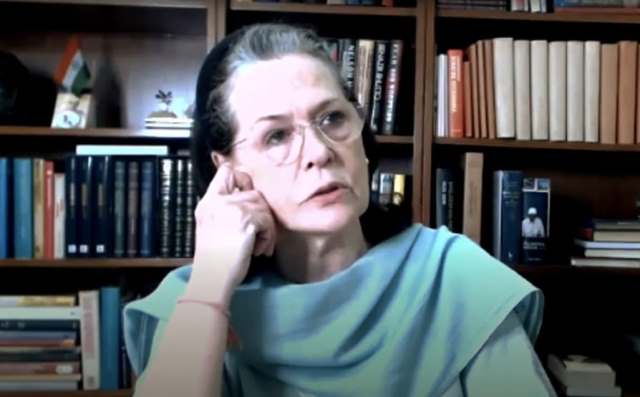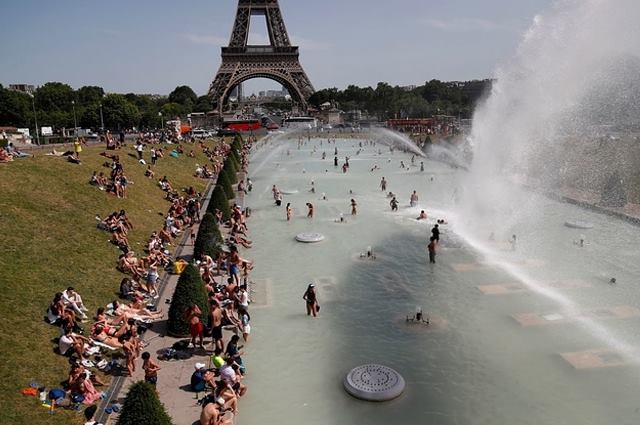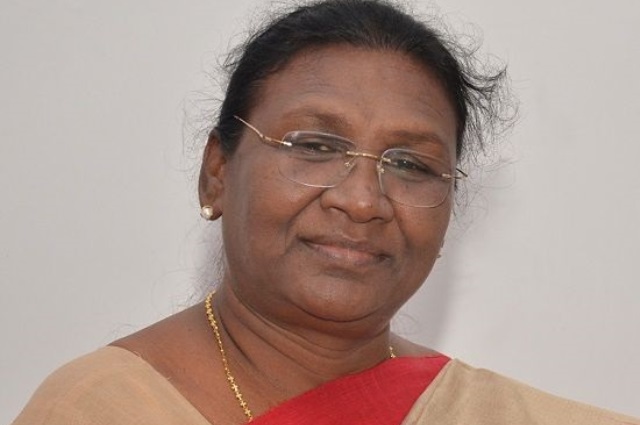World Health Organization (WHO) has urged the regional governments to implement the Paris climate agreement, which is termed a “health treaty” by the COP26 (United Nations Climate Change Conference) Health Programme, as the prolonged heatwaves continue to grip the European Region of the WHO, causing wildfires and record-breaking temperatures.
“Governments need to demonstrate political will and genuine leadership in implementing the global Paris Agreement on climate change, with collaboration replacing division and empty rhetoric,” WHO Regional Director for Europe Hans Kluge said in a statement on Friday.
According to Kluge, 1,700 people have died as a result of the current heatwave in Spain and Portugal. The wildfires caused by the heatwaves have spread from southern Europe to as far north as Scandinavia, Xinhua reported.
This week, with the “scorching summer season barely halfway done,” fires in London have destroyed 41 homes, he said.
“Ultimately, this week’s events point yet again to the desperate need for pan-European action to effectively tackle climate change –the overarching crisis of our time that is threatening both individual health and the very existence of humanity,” he added.
In reaction to the extreme effects of the current heatwave, the WHO has issued guidance support for national and local authorities “to save lives and strengthen the resilience of communities and people to cope during extreme heat.”
The WHO guidance recommended basic steps for everyone that included keeping out of the heat as much as possible, during the night as well, Xinhua reported.
It asked the citizens to avoid strenuous physical activity and to ensure that children and animals are not left in parked vehicles. The guidelines also adviced to seek medical advice if one is suffering from a chronic condition or taking multiple medications.
Furthermore, Kluge reiterated the United Nations Climate Change Conference’s call for “health systems to assume their share of the responsibility to step up their resilience to, and fight against, climate change,” arguing that coordinated action on multiple fronts will “strengthen environmental health and reverse the ravages of climate change.”
Earlier, World Metrological Organization (WMO informed that extreme heat in western Europe is causing devastating wildfires in France and Spain, and unprecedented drought in Italy and Portugal.
According to UN’s WMO, the UK recorded its highest-ever temperature of just over 40 degrees Celsius on Tuesday, at London’s Heathrow airport. With temperatures expected to remain above normal until the middle of next week, the WMO warned that heatwaves will occur more and more frequently, into the 2060s.
The pattern is linked to the observed warming of the planet that can be attributed to human activity, raising serious concerns for the planet’s future, the UN weather agency said.
“We are expecting to see major impacts on agriculture. During the previous heatwaves in Europe, we lost big parts of harvest. And under the current situation -we are already having the global food crisis because of the war in Ukraine – this heatwave is going to have a further negative impact on agricultural activities,” warned Petteri Taalas, Secretary-General of the WMO at a presser here to launch the latest extreme weather findings.
The heatwave also acts as a kind of atmospheric lid, WHO explained, trapping pollutants, and degrading air quality, with adverse health consequences, particularly for vulnerable people such as the elderly. In the major 2003 heatwave in Europe, some 70,000 people died, UN News reported.
“Climate change is affecting our health in many ways, not only by heatwaves which are having direct consequences” but also other areas of essential healthcare, such as rising levels of disease, alerted Maria Neira, Director for public and environmental health at WHO.
She explained that reliable access to food and water is at stake, as with agricultural production levels at risk.
She said that 99 per cent of the global population is breathing air that does not meet the health standards set by WHO, hugely impacting chronic respiratory and cardiovascular conditions.
“The best solution to this will be, again, being very ambitious on tackling the causes of this global warming. We have been alerting for a long time that climate change is affecting very much human health”, she emphasized, which will also impact the struggle to reach net zero carbon emissions, and the crucial transition to clean, renewable sources of energy.
More deaths among the elderly and those with pre-existing health conditions are feared due to the ongoing heatwave in the weeks ahead, and subsequent challenges to health systems, to keep up with rising demand. (ANI)









